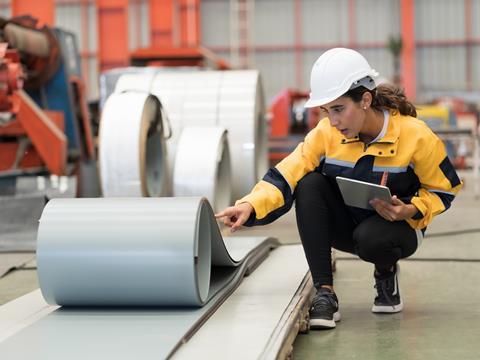
Looking ahead to 2024, Aluminium Deutschland expresses its concern for Germany as an industrial location for aluminium, fearing that increasing over-regulation, high energy costs, and economic recession could have a serious impact on the industry.
Last year, the German aluminium industry saw a steep decline in production across almost every sub-sector, especially primary production. Smelters reportedly saw a 45% decline in production to an annual total of 189,000 tons; this came after a 30% drop in 2022.
Until 2021, Germany was thought to have been the largest producer of primary aluminium in the EU. It was apparently responsible for 37% of the volume of aluminium produced before the energy crisis, and was still said to oversee more production during the economic recession of 2009 than it did in 2023.
Semi-finished aluminium products also saw a 9% decline and reached 2.33 million tonnes – the lowest figure since the financial crisis began. Within this category, extruded product manufacturers saw a particularly sharp decline of 15% and produced 500,000 tons.
1.83 million tonnes of rolled aluminium products were produced, which marks a 7% decline.
Under the current circumstances, aluminium smelters are shutting down under the strain of the German electricity market, with one of the four remaining in the country closing its doors at the end of last year.
Alongside high energy costs and weaknesses within the economy, the industry is struggling with increasing competition from third-country importers.
Aluminium Deutschland states that over-regulation and a lack of industrial policy are causing German producers to feel unsupported in the current political and economic climate.
“The year 2023 has shown very clearly that the energy transition strategy in its current form is not working,” said Rob van Gils, president of Aluminium Deutschland. “Over-regulation, massive bureaucracy and a lack of understanding of the importance of industry for prosperity and participation in Germany are damaging the acceptance of the need for a smart climate protection policy.
“We have repeatedly emphasised that without aluminium, without resilient supply chains and more strategic independence from third countries, the transformation of European industry will not succeed. In addition, there is an urgent need to put the importance of industry as a driver of employment and prosperity back at the centre of policy decisions.
“It is not good news if CO2 emissions fall to their lowest level since the 1950s in 2023. This is not the result of clever energy policy, but the result of catastrophic economic policies.
“Our companies have been investing in more efficient and thus low-CO2 production for years. Both our products and our processes have the footprint in mind as an important goal. With us and with our customers.
“Instead of strengthening and accompanying this development with clever framework conditions, additional burdens are added year after year, month after month. That can’t and won’t go well for long. Here, too, the stock market wisdom applies: the jobs are not gone, they are just somewhere else.”
Last September, Aluminium Deutschland warned that Germany’s aluminium industry was ‘still in crisis mode’ where energy supply and global competitiveness are concerned – even as the European Parliament adds aluminium to the list of Strategic Raw Materials in the upcoming Critical Raw Materials Act.
On the other hand, the International Organisation of Aluminium Aerosol Container Manufacturers (AEROBAL) reported that its members’ global shipments of aluminium aerosol cans increased by 6.6% to just over 3.2 billion units in the first half of 2023. CO2 reduction and challenges posed by global economic conditions were also becoming a central focus.
If you liked this article, you might also enjoy:
The Lidl approach to packaging sustainability
How did Brazil achieve its 100% aluminium can recycling rate – and can it be replicated in the EU?
Experts have their say on the EU’s Packaging and Packaging Waste Directive revisions
A deep dive into the most important packaging sustainability trends and solutions














No comments yet